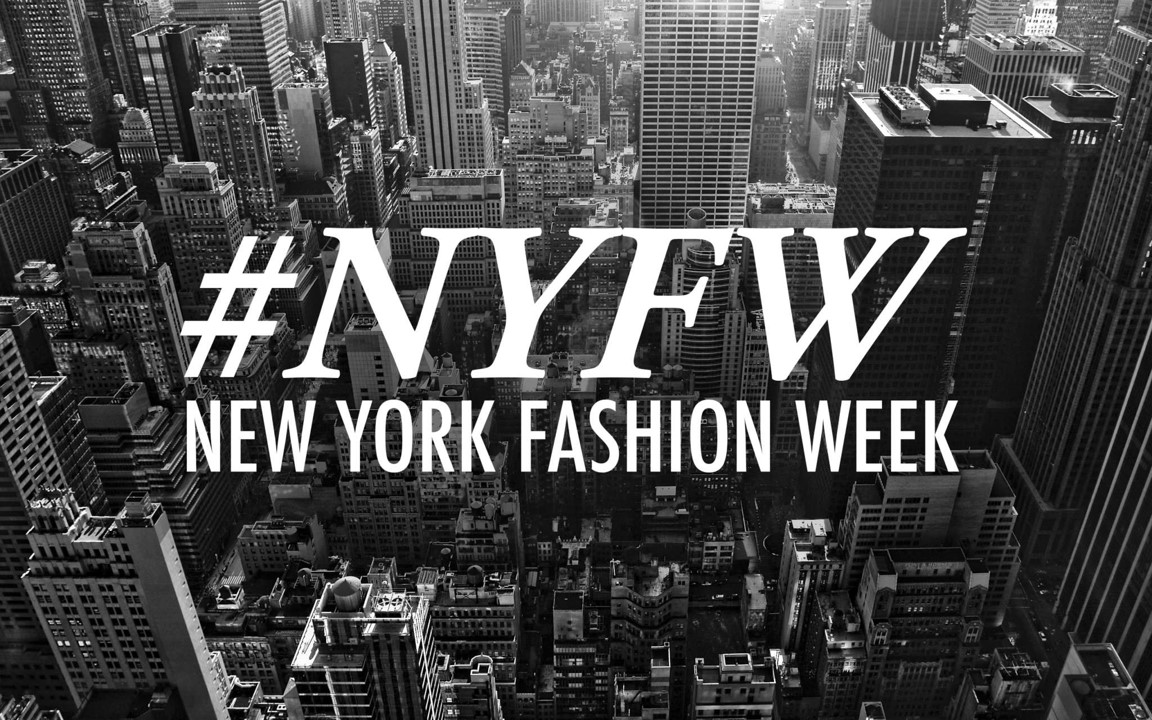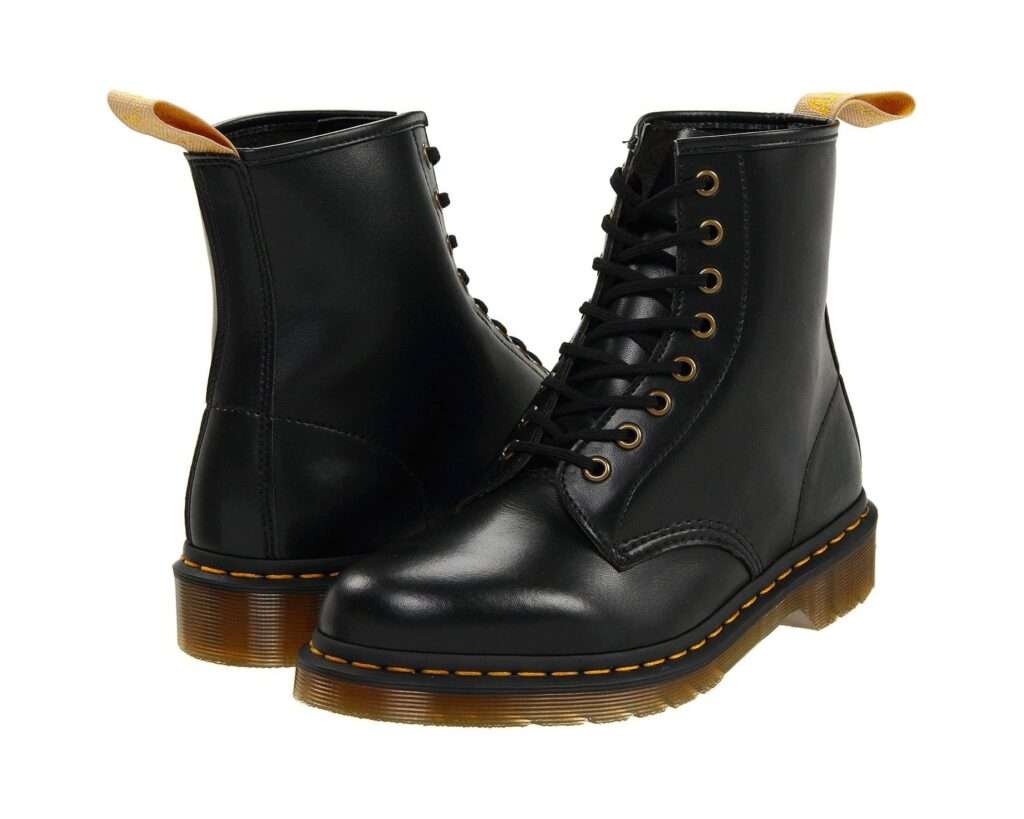
John Kennedy of circular fashion platform Gen Phoenix says Fashion Weeks can lead the industry toward a more sustainable future.
NYFW saw a swell of innovation around circular fashion. Christian Siriano hosted Circ’s NYFW debut, Melke turned pencils and erasers into dresses, and Zero Waste Daniel tapped Broadway stars for his upcycled collection at Midnight Theatre, to name a few standouts. According to John Kennedy, CEO of Gen Phoenix, a leader in converting leather waste into luxury materials used by brands like Coach and Dr. Martens, there are countless opportunities to make Fashion Week events more sustainable.
It’s already becoming the norm for Copenhagen Fashion Week (CPHFW), Kennedy says. The European Fashion Week’s requirements include ensuring production methods limit clothing waste, such as by using recycled fibers, using 60 percent certified or deadstock fabric, ensuring set design and show production be zero waste, a ban on single-use plastic, and CPHFW was the first major Fashion Week to enact a ban on fur, wild animal skins, and feathers. The show also encourages labels to offset carbon emissions and pay workers a living wage.

For Gen Phoenix, finding more ways to bring circular fashion front and center at Fashion Weeks and beyond, is critical. “Sustainable materials, like Gen Phoenix’s recycled leather innovation, not only offer brands and fashion week spectators a design with a substantially lowered carbon footprint, but also a product innovation story,” Kennedy told Ethos via email.
We caught up with Kennedy to learn more about bringing circularity to the fashion industry and how Gen Phoenix is helping advance that mission.
*This interview was edited for length and clarity
Ethos: With CPHFW setting a precedent with its 60 percent certified or deadstock fabric requirement, how do you envision other Fashion Weeks adopting similar eco-standards, and what challenges might they face in implementing such measures?
JK: Implementing a requirement for a high percentage of certified or deadstock fabrics could drive substantial change, but it will require collaboration and commitment from all stakeholders, including designers, brands, and suppliers. My view is that Fashion Weeks should work in concert to align on a coordinated and consistent set of objectives and standards. Adopting the same approach and standards will make it easier for brands to comply and will signal collaboration rather than competition as it relates to a subject as challenging and critical as implementing more sustainable solutions at scale.
Ethos: Cecilie Thorsmark of CPHFW mentioned that even small or medium-sized enterprises (SMEs) have the power to influence major brands. How can other Fashion Weeks leverage this philosophy to become a global leader in sustainability within the fashion industry?
JK: I support the sentiment of this statement, i.e. that SMEs should be confident and show leadership in this space. The harsh reality, in my opinion, is that the competitive and financial pressures that brands face outweigh the ability of SMEs to significantly influence their perspectives and priorities. My belief is for a sustainable material to be adopted at scale, it must meet three requirements: (1) it needs to perform as well as the material that it is replacing, (2) it needs to be materially better from an environmental perspective, and (3) it needs to deliver a commercial outcome that does not increase the price to the consumer and does not dilute the brand’s margins. The most effective way to influence brands to adopt new materials is to understand their needs, priorities, and objectives, and then deliver genuine solutions that solve their problems.

Ethos: Balancing sustainability with cutting-edge design is a challenge for many fashion brands. How do you think Fashion Weeks can serve as a platform to showcase that sustainable fashion doesn’t have to compromise on style and creativity?
JK: Fashion Weeks have the potential to redefine perceptions by demonstrating that sustainable fashion can excel in both style and innovation. By presenting collections that integrate sustainable materials with cutting-edge design, these events can challenge the notion that eco-friendly fashion lacks flair. Showcasing designers who achieve this balance will not only highlight that sustainability and creativity can coexist but also set a precedent for future fashion shows.
Ethos: How important is it for Fashion Weeks to set and enforce sustainability standards, and what impact do you believe this can have on consumer behavior and industry practices?
JK: The fashion industry is the second-biggest consumer of water and is responsible for two to eight percent of global carbon emissions, making the need to prioritize sustainability extremely important. Setting and enforcing sustainability standards at Fashion Weeks is crucial for driving industry-wide change. By establishing clear and consistent benchmarks for sustainability, fashion weeks can influence consumer expectations and encourage brands to adopt more responsible practices. This ripple effect can lead to increased transparency, reduced environmental impact, and a shift in consumer behavior toward supporting brands that prioritize sustainability.
Ethos: Gen Phoenix has been instrumental in converting leather waste into luxury materials for brands like Coach and Dr. Martens. How can your innovative approach to upcycling materials inspire designers to integrate sustainable practices into their collections?
JK: Gen Phoenix’s approach to upcycling leather waste into luxury materials demonstrates that sustainability can be both innovative and high-end. By showcasing our success with Tapestry for Coachtopia and Dr. Martens for the Genix Nappa collection, we hope to inspire designers to explore upcycling and other sustainable practices. Our work illustrates that integrating sustainable materials into fashion collections does not mean compromising on quality or style but can enhance the uniqueness and value of the designs.
Ethos: The use of wood-based fabrics and upcycled leather is gaining traction. Can you discuss the potential of these materials in the broader fashion industry?
Wood-based fabrics and upcycled leather represent exciting advancements in sustainable materials. Wood-based fabrics, such as those derived from cellulose, offer a renewable and biodegradable alternative to conventional textiles, while upcycled leather can repurpose waste and reduce the demand for new materials.

Despite these innovations, including organic and natural materials, achieving large-scale production remains a challenge. Currently, many plant-based leather alternatives are still at a small, lab-scale stage. In contrast, our technology at Gen Phoenix has successfully allowed us to scale our recycled leather material, offering a solution that can make a real impact today.
Ethos: Looking ahead, what do you see as the future of sustainable fashion, and how can Fashion Weeks drive the conversation and innovation around sustainability forward?
These high-visibility moments are the perfect time to spur conversation, and this is something Gen Phoenix has already begun to enact. For example, inspired by the theme of this year’s Met Gala, which centered around breathing new life into garments, we used this moment to call on leaders across the fashion and retail industry to adopt luxcycling meaningfully by introducing (Re)Creative Directors into their design teams. We believe the future of the industry and the planet requires collaboration and accountability, so it’s important that these iconic events – when all eyes are on the fashion industry — serve as a place where sustainability is spotlighted.
The future of sustainable fashion lies in continued innovation and the widespread adoption of eco-friendly practices. Iconic events like Fashion Week have the power to drive this future by setting ambitious goals, showcasing pioneering designs, and fostering dialogue around sustainability. By leading by example and promoting groundbreaking solutions, Fashion Weeks can inspire other fashion weeks and brands to follow suit, ultimately advancing the global movement toward a more sustainable and responsible fashion industry.


